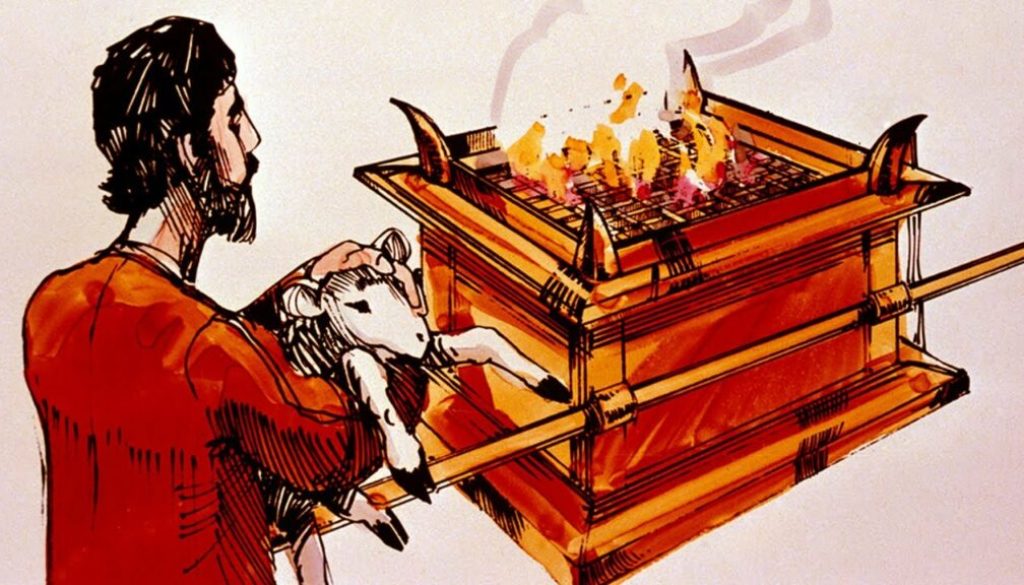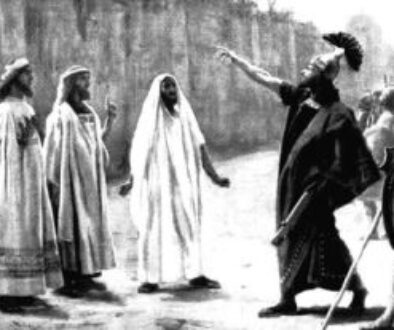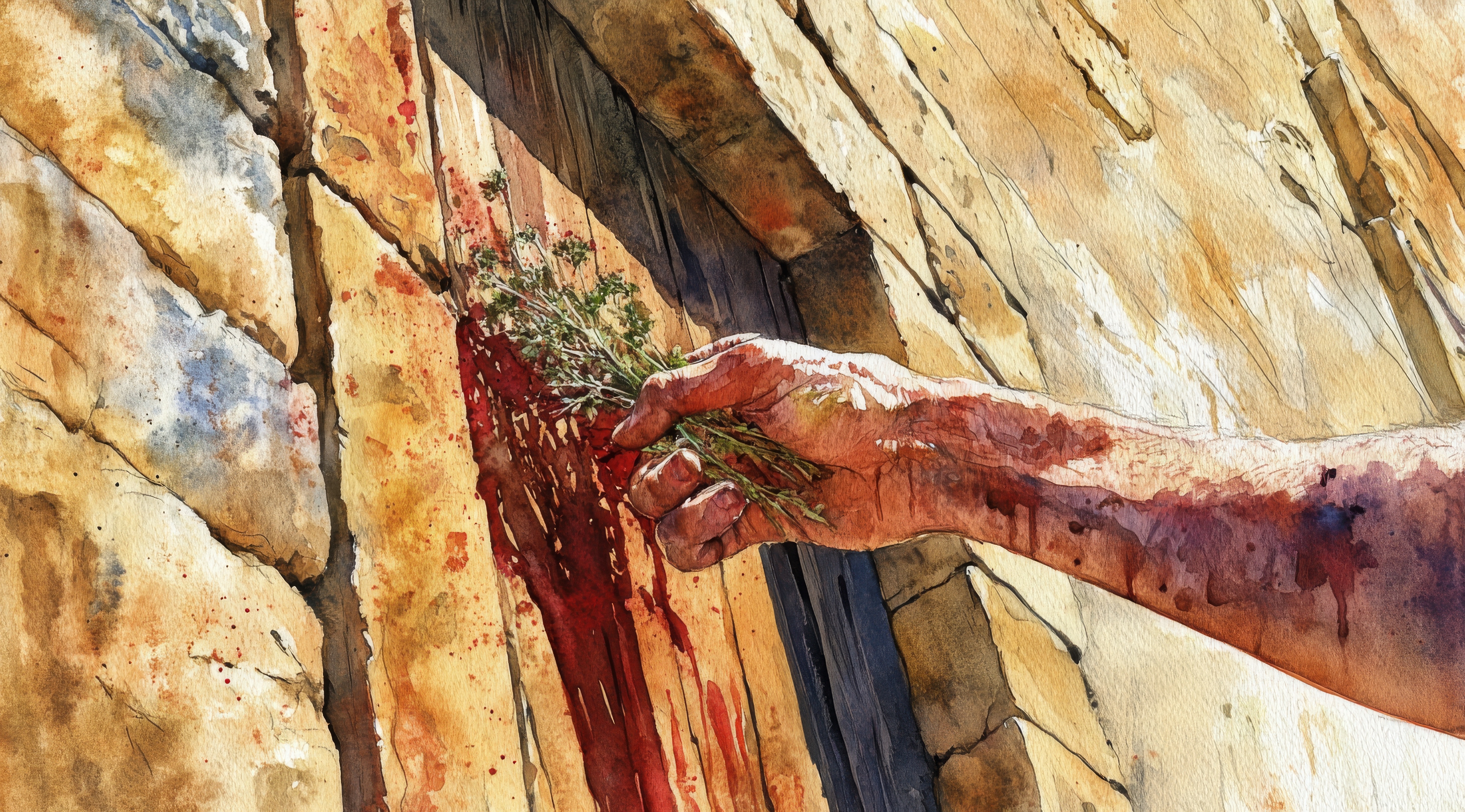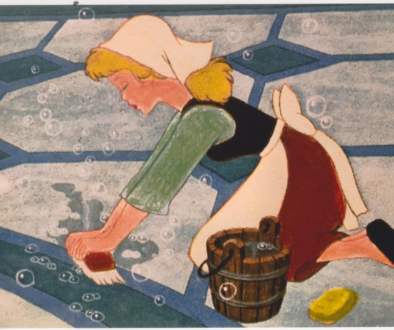Leviticus 1:1-17 Burnt Offerings
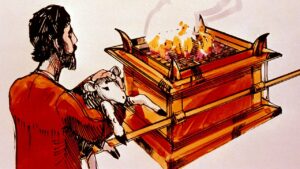
We are wading into deep water now. We have reached Leviticus and are about to embark on learning about God’s Law. Gulp!
God starts out by addressing the burnt offerings first. I am going to confess a bit of confusion on this issue still. God says “It is a burnt offering, a food offering” to all three of these examples. Is the animal fully burned, cooked, or just the part that is separated kept for consumption? I am no expert and I hadn’t found a good answer for this question the last time I encountered it.
Because I didn’t find a satisfactory answer the first time I had to look again. What I found is that with a burnt offering ALL of it was burnt. None was saved except the skin. This was not a meal preparation but a complete surrender of this animal to the Lord.
The portion about the legs and entrails was confusing to me until I looked at the text more closely, due to prompting from other study sites. Originally I was under the impression that the priests took these pieces and washed them then did “something” with them. But that is not what happened. The one bringing the offering washed these pieces and then gave them to the priest to put on the altar with the rest of the animal to be consumed by fire.
Something I hadn’t noticed when reading about the burnt offerings before is how much the person bringing the offering has to do. I was under the impression that they pretty much turned the offering over to the priest at the door and the priest did the rest. NOT SO.
There is a LOT the one bringing the offering has to do. The first thing he has to do is select the animal. The individual is allowed to bring one of three different animals. The first two choices came from his own personal stock. I don’t know about the bird. Did the Israelites raise birds or did they have to hunt them down? In choosing the animal they had to choose one of the best, if not THE best. It had to be a male and there could be NO defect, not even a skin blemish. The animal had to be perfect. This meant that the owner was giving up something of great value in this act. The animal chosen could have sired other high quality animals or fed his family well. Instead, it is to act as a substitute for the giver. There would have to be a compelling reason for this exchange; the animal’s life for God’s favor. THAT alone IS a compelling reason, but I’m getting off track here.
The second thing the individual had to do was recognize and symbolize that this animal was taking his place. By placing the hand on the animal’s head, they were acknowledging that this animal was dying in their place. The animal had done nothing worthy of punishment or death, but the individual had. That was the reason for bringing the sacrifice in the first place. Atonement had to be made.
The third thing the individual had to do was the act of killing the animal. The priest didn’t do this for him. HE had to put his hand to the knife and take the life of the animal standing in his place. He could not pass this task off to someone else or skip over it. And involved in killing it was the task of collecting its blood for use. This involved watching as the lifeblood of the animal poured forth from first to last drop.
Let’s pause a moment and contemplate that part. He had to watch his own substitution give up every drop of blood. He had to watch as death took it.
I know. People might think I’m being overly dramatic here because, after all, it was just an animal. But it was more than that. It was his replacement. HE should have been the one under the knife by all legal purposes. But instead something else took his place.
The next task undertaken by the man was skinning and cutting the animal into pieces to be placed on the fire. He had to disembowel the animal and remove its hind legs during this process. These would need an extra step before being placed on the altar.
At this point the animal’s body (pieces) were turned over to the priest to be laid on the altar. While that was happening, the entrails and the legs had to be cleaned by the one bringing the sacrifice. I’m not sure the significance of this unless these were the “dirtiest” parts of the animal and required special attention before they could touch the altar. Once they were clean, they were also given to the priest to be burned with the rest of the animal.
In truth, the priest did little in this offering for the individual. Most of the duties fell on the one bringing the offering. I believe God intended it to be this way so the individual had time to reflect on the process and purpose.
In the offering of the bird the priest is the one who actually kills the animal but the man is to prepare it from that point on. The priest “wrings off its head”. The man removes the crop, its content, and nearly rip it in two by the wings. I’m not sure but it looks as if the priest applies its blood to the altar right after wringing its head off. After it is torn through the chest by pulling it apart by the wings, then it is placed by the priest onto the altar to be completely burned.
The bird offering was included to allow even those who were poor to bring something to the Lord. EVERYONE had need of this substitution sacrifice at one time or another. This was an individual act on behalf of the man or his family and it was very personal.
The priests performed this offering twice a day too. But that offering was for the whole people and was mandated by God. The offering described here was one that was brought whenever the spirit moved a man to do so. It was a gift from the heart. I wonder if more of them were given out of guilt, gratitude, or petition. That would be something that only God and the giver would need to know.
Jesus was our substitution sacrifice, even though we today didn’t physically participate in the process. That substitution is no less valid for us as it was for the man in front of the Tabernacle. God saw his heart and honored it. God sees our hearts too when we come to Him and ask to partake in Jesus’ sacrifice. We NEED to take time and reflect on this just as the man was required to do. We need to recognize the cost we are spared and thank the one who took it instead. YES. The price had to be paid for sin, then and now. In Moses’ day the animals carried that weight, even though we know from our point in history that it wasn’t 100% effective. In our time we recognize Jesus’ willingness to accept that role.
Lord Jesus, THANK YOU for taking my place. Thank You that I don’t have to stand with knife in hand making again an offering for my failures. Thank You that Your sacrifice washes away ALL sin, not just my past mistakes but my future ones too.
Holy Spirit, thank You for bringing today’s reading to life for me. I was dreading moving into this book. I was (am still to some degree) feeling inadequate and reluctant to even try. But You NEVER fail me when I give You our time. You ALWAYS bring something special out of God’s word. THANK YOU.
Father God, thank You for taking the time to set these laws down in writing so the people could have them long term. Without Your written word it would be SO easy to “wing it” or only do the parts that appealed to me. But You didn’t lose the old testament after giving the new so there MUST be gems You want me to search out. Keep me digging and keep me motivated to come every day. Thank You again for bringing me here today.

